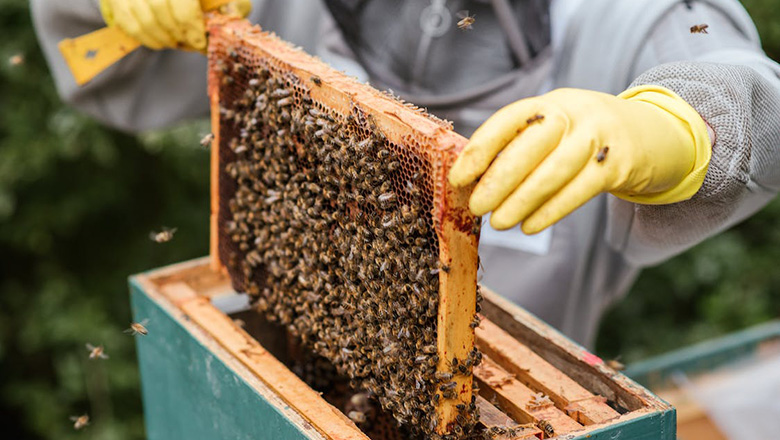Enjoy honey – but sustainably
When it comes to planet-safe nutrition, we often talk about seasonal produce. However, some delicious edibles are available year-round – and that's because they don't spoil easily. Fortunately, we can always get hold of flour to make noodles or pastry. And honey is another product that enjoys a long shelf life. This is because of its high sugar content, and because bees are known to secrete a mildly antibiotic substance during production, which is why a spoonful of honey often helps ease a sore throat!
Even honey is also best bought regionally
Every Swiss eats an average of around 1.2 kg of honey a year. During these times of inflation, we've (re)learnt to pay more attention to the price of our food. Unfortunately, regionally produced honey does not fare well in this respect. Honey is becoming more expensive because bees are under pressure – for reasons that are not yet fully understood, fewer and fewer bee colonies are making it through the winter without a critical loss of workers. Around two-thirds of honey sold in Swiss supermarkets, therefore, comes from abroad. Argentina is one important source of this sweet commodity, but it is also a popular export product of other poor countries. Although it is a highly concentrated foodstuff, the grey energy with regard to its logistics does have an impact, but it is still the better option for those on a tight budget. If budget is a sticking point, then it is important to opt for fair-trade certified honeys.
Organic certified honey is considered a rather lofty concept by comparison as bees are, after all, out in nature, and nobody can control from one day to the next what nectar from which flower is being converted into honey. (As we read on utopia.de, organic certified honey is more about basic conditions, and we're not talking here about bud-certified honey: Bee hives must be made of natural raw materials and painted with pollutant-free paint, no sugar or syrup in winter and zero meds from the pharmaceutical industry). If you like walking or biking, you will often come across signs used by apiarists to advertise their locally-produced honey – shopping with these people is sensible, regional and emotional. Apisuisse, the umbrella organization of the Swiss Beekeepers' Association, guarantees residue-free quality and the all-important gentle extraction process with its Gold Seal.

Urban honey – cool stuff
Unfortunately, the agriculturally used parts of Switzerland and its neighbouring countries offer a suitable habitat for fewer and fewer species. Humans demand cheap food, which can usually only be achieved by using pesticides, and which is why today's cities have developed into islands of biodiversity. In Zurich, for example, there is a platform called Wabe3 that looks after between 80 and 100 bee colonies, each one containing around 35'000 bees. These colonies are spread across twelve locations throughout the city. The bees ensure that the city's flowers are pollinated and its fruit trees bear fruit. And the best thing about city honey: the bees producing it come into contact with much less pesticide! Wabe3 even offers a course to help those of you who want to keep your own bees.

